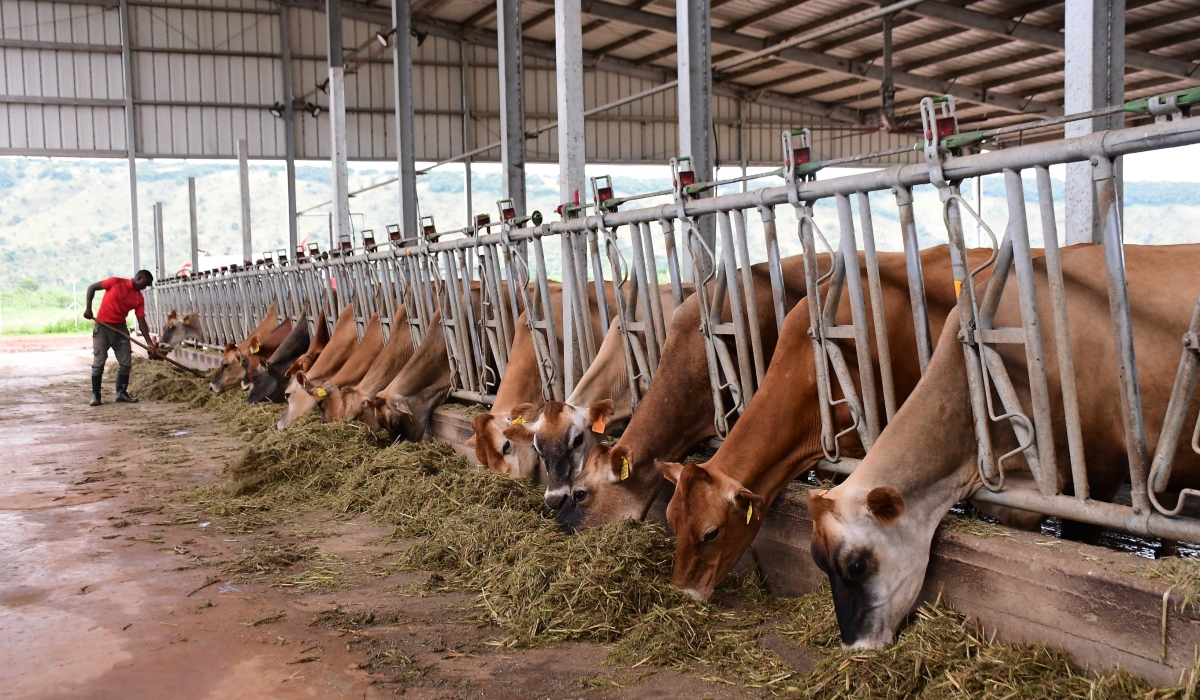Rwanda unveils Rwf7 trillion agricultural strategic plan.

Rwandan government has unveiled an ambitious five-year agricultural strategic plan with a budget of approximately Rwf6.988 trillion (around $5.4 billion). This plan aims to boost sector growth, combat malnutrition, and double the nation’s agricultural export revenues.
According to the Ministry of Agriculture and Animal Resources, the government will contribute over Rwf3.3 trillion (47% of the total), with the private sector and grants covering the remaining 53% (more than Rwf3.68 trillion).

The plan, known as the fifth Strategic Plan for Agriculture Transformation (PSTA 5), will focus on enhancing resilience and developing sustainable agri-food systems. It will be implemented from the fiscal year 2024/2025 starting July 1 through 2028/2029.
Private Sector Leadership
“We want the private sector to lead the implementation of this strategy,” stated Chantal Ingabire, Director General of Planning at the Ministry of Agriculture and Animal Resources, emphasizing the government’s role as a facilitator.
Ingabire presented the PSTA 5 during a High-Level Agriculture Sector Working Group Meeting on June 14, 2024, in Kigali. Reflecting on the fourth Strategic Plan for Agriculture Transformation (PSTA 4), which concludes on June 30, she highlighted significant investments in addressing climate change. However, she noted that the agriculture sector remains vulnerable to climate shocks, affecting productivity.
Despite government subsidies for improved agricultural inputs and livestock technologies, adoption rates among smallholder farmers remain low. “It’s crucial to consider these farmers as we move forward with our food systems approach,” Ingabire said.
PSTA 5 Vision and Mission
PSTA 5 aims to ensure food security, nutritional health, and sustainable agricultural growth, driven by productive, resilient, and market-oriented agriculture. The mission is to enhance food and nutrition security through modern production technologies, professionalizing farmers, and boosting competitiveness.
This vision aligns with Rwanda’s Vision 2050, which views agriculture as a key to inclusive wealth creation, and the second phase of the National Strategy for Transformation (NST2).
Expected Outcomes
PSTA 5 targets substantial contributions to Rwanda’s economic transformation. Key goals include increasing annual agricultural GDP growth to 8.2% from a baseline of 2% in 2023, and raising agricultural export revenues to $1,981 million from $857 million in 2022/2023.
Additionally, the plan aims to create over 644,000 off-farm jobs in agri-food systems, up from 400,000, addressing unemployment, particularly in rural areas and among the youth. It also seeks to enhance food security and reduce stunting rates among children.
Priority Areas
The strategy focuses on three main areas:
- Modernization of Agriculture and Animal Resources Production for Climate-Resilient Food Systems: Budgeted at Rwf3.56 trillion (approx. $2.75 billion).
- Inclusive Markets and Post-Harvest Management for Sustainable Agri-Food Systems: Budgeted at Rwf1.8 trillion (approx. $1.4 billion).
- Strengthening Agri-Food Systems Enablers for Effective and Efficient Delivery: Budgeted at Rwf1.6 trillion (approx. $1.24 billion).
Key outputs include new agricultural land management and production models, urban farming promotion, mechanization scaling, and modern inputs and labor-saving technologies. Other areas include sustainable animal breeding, enhanced livestock feed access, fisheries and aquaculture development, and beekeeping.
The plan also aims to strengthen export value chains, improve post-harvest handling, ensure food safety and quality, promote demand-driven research, implement customized extension services, foster digital innovation in agriculture value chains, increase formal agriculture finance access, and expand the national agriculture insurance scheme to protect stakeholders from potential losses.
This comprehensive strategy is set to transform Rwanda’s agricultural landscape, fostering growth, sustainability, and resilience in the sector.





